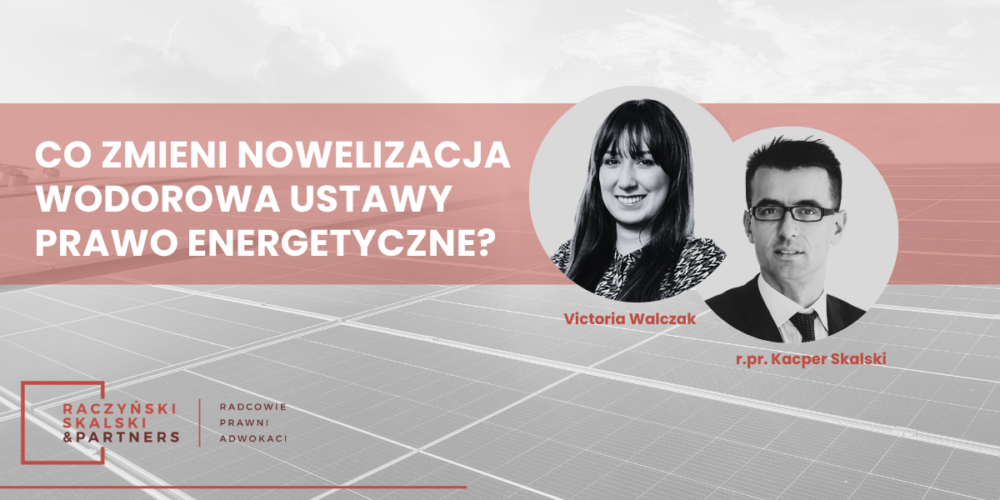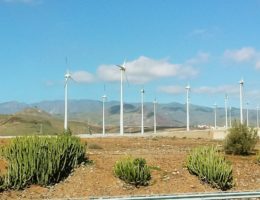One of the European Union’s climate goals is to achieve so-called climate neutrality by 2050, and it is expected that an important role in achieving this goal will be played by the use of hydrogen by member states on a much larger scale than at present. National legislation has so far failed to create a comprehensive legal framework for the hydrogen economy, which is why on May 27, 2024, a draft law amending the Energy Law and certain other laws appeared on the website of the Government Legislation Center. The amendments will more broadly regulate the development of the hydrogen economy in Poland.
According to the justification of the bill (draft UD36), the use of renewable energy sources to produce renewable hydrogen, the creation of new jobs and the reduction of air pollution are just some of the arguments for the necessity of the amendment. These benefits are likely to occur if hydrogen is properly regulated in the energy law, as according to Phase II of the European Hydrogen Economy Implementation Plan 2025-2030, Poland aims to make hydrogen part of an integrated energy system.
First and foremost, the proposed changes include the introduction of definitions:
-
-
- low-carbon hydrogen as hydrogen derived from non-renewable sources;
- renewable hydrogen being hydrogen produced from renewable energy sources;
- renewable hydrogen of non-biological origin, also derived from renewable energy sources, but meeting additional criteria in doing so.
-
In addition, according to Article 3(3), fuels are “solid, liquid and gaseous fuels that are carriers of chemical energy,” here the amendment adds “and hydrogen,” thereby including hydrogen in the category of fuels.
In addition, new definitions will be introduced, among others:
- gas-hydrogen combined system operator, as the entity that manages at least one gas system and one hydrogen system;
- hydrogen system user, as an entity supplying or consuming hydrogen;
- a hydrogen transmission network, which is designed to transmit hydrogen;
- a hydrogen distribution network, which will serve to transport and deliver hydrogen,
- the hydrogen transmission system operator as an energy company engaged in hydrogen transmission and responsible for hydrogen network traffic.
Moreover, it will be amended from Article 3, paragraph 28 of the Energy Law, where the issue of hydrogen system will be added to the definition of interconnected system operator. A whole grid of concepts will be introduced into the Energy Law to ensure the development and operation of the hydrogen market in Poland.
Regulation of hydrogen market participants will also be introduced, and the President of the Energy Regulatory Authority (ERO) will be given additional responsibilities, such as certifying and designating hydrogen system operators. The introduction of the principle of a combined gas-hydrogen system operator will enable natural gas and hydrogen to be combined under a single entity. The legislator points out that the use of the current gas infrastructure and the combined gas system operator will allow a viable and faster introduction of hydrogen on Polish territory.
In addition, there will be an obligation to obtain a license for hydrogen storage (with the exception of local storage in small hydrogen storage facilities). It should be noted that the legislator has abandoned the introduction of a license for hydrogen marketing and distribution. However, the obligation to obtain a license for hydrogen trading will occur if the annual value of hydrogen trading exceeds the equivalent of €1,000,000. Thus, a hydrogen storage system operator will also be introduced.
The introduction of the new regulations also includes obligations such as submitting reports on hydrogen activities, obtaining licenses and keeping accounting records. The catalog of penalties for failing to comply with obligations related to hydrogen activities or for failing to obtain the required license has also been expanded.
It is also worth mentioning that amendments to other laws will affect, among others, the Construction Law), where significant regulations will be introduced regarding construction works and construction notification, e.g., in Article 29, hydrogen networks and hydrogen purification facilities are added to construction and construction works not requiring a construction permit.



